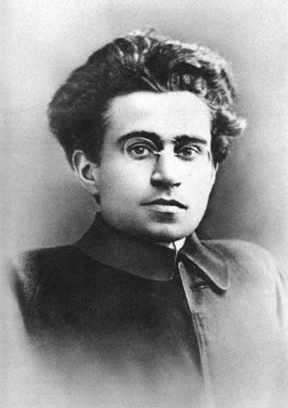Antonio Gramsci, a thinker synonymous with revolutionary thought, cultural hegemony, and the war of position, was an Italian intellectual and political activist who left an indelible mark on 20th-century Marxist theory. His life, a tapestry of brilliance, tragedy, and unyielding commitment, unfolded amidst the tumultuous political landscape of Italy between the world wars.
The Crucible of Sardinia and the Birth of a Revolutionary Spirit
Born on January 23, 1891, in Ales, a small town in the impoverished region of Sardinia, Italy, Antonio Gramsci was the youngest of seven children in a working-class family. His early life was marked by financial hardship and personal struggles, including a debilitating spinal injury that left him hunched for the rest of his life.
Despite these challenges, Gramsci exhibited an exceptional intellect and a thirst for knowledge from a young age. He devoured books, excelled academically, and developed a keen interest in social justice and political activism. His experiences in Sardinia, witnessing the exploitation and poverty of the working class, ignited his revolutionary spirit and shaped his worldview.
Turin: A Crucible of Intellectual Ferment and Political Awakening
1911, Gramsci moved to Turin, Italy’s industrial heartland, to study at the University of Turin. Immersed in the vibrant intellectual milieu of the city, he encountered a diverse range of ideas, including Marxism, Socialism, and neo-idealism. These influences profoundly shaped his intellectual development, leading him to embrace Socialism and join the Italian Socialist Party (PSI) in 1914.
The Rise of Fascism and Gramsci’s Unwavering Resistance
The tumultuous years following World War I saw the rise of Benito Mussolini and the Fascist Party in Italy. Gramsci, a staunch critic of fascism, recognized its threat to socialist values and social justice. He emerged as a leading voice of resistance, using his journalistic talents to expose the Fascists’ excesses and advocate for Socialism.
Gramsci’s unwavering opposition to fascism made him a target of the regime. In 1926, Mussolini, fearing Gramsci’s intellectual influence and political activism, had him arrested and sentenced to 20 years in prison. Gramsci spent the remainder of his life behind bars, but his imprisonment did not deter his intellectual pursuits.
The Prison Notebooks
Despite the harsh conditions of his confinement, Gramsci’s mind remained active, producing a vast body of writings known as the Prison Notebooks. These notebooks, written under the watchful eye of prison censors, constitute a significant contribution to Marxist thought.
In The Prison Notebooks, Gramsci challenged the traditional Marxist view of revolution, arguing that a successful revolution would require a “war of position” rather than a violent overthrow of the State in developed capitalist societies like Italy. He emphasized the importance of cultural hegemony, asserting that the ruling class maintains its power through economic control and dominance in the realm of ideas and values.
Gramsci’s “war of position” concept would gradually transform society through education, cultural critique, and political organizing. He believed the working class could achieve hegemony by challenging the dominant ideology and building a counter-hegemony reflecting their values and aspirations.
Gramsci’s Legacy:
Gramsci’s ideas have had a lasting impact on Marxist thought and political theory. His concept of hegemony, in particular, has been widely adopted and applied in various contexts, providing a framework for understanding the dynamics of power and the struggle for social change.
Gramsci’s legacy extends beyond academia, influencing political movements, cultural studies, and critical theory. His writings continue to influence activists, scholars, and intellectuals seeking to understand and challenge the power structures that shape our societies.
Gramsci’s Limitations:
While Gramsci’s contributions to Marxist thought are undeniable, his work has not been without its critics. Some argue that his emphasis on cultural hegemony overemphasizes the role of ideology and underestimates the importance of material conditions in shaping political struggle.
Others point to Gramsci’s overly optimistic view of the working class’s ability to achieve hegemony, suggesting that he underestimated the resilience and adaptability of the ruling class. Despite these criticisms, Gramsci’s work remains a source of insight into the complexities of political power and the dynamics of social change.
Fascist Perception of Gramsci
The prosecutor at Gramsci’s trial recognized Gramsci’s formidable intellect and political acumen remarked, “We must stop this brain from working for 20 years.” This statement underscores the apprehension Fascists held for Gramsci. They viewed Gramsci as a formidable intellectual threat capable of mobilizing resistance against their fascist regime.
Gramsci’s unwavering commitment to socialist values, his sharp critique of fascism, and his ability to connect with the working class made him a dangerous adversary in their eyes. Gramsci’s imprisonment was not merely a punishment but an attempt to silence a powerful voice of dissent.
Here are a few quotes from Gramsci
The old world is dying, and the new world struggles to be born; now is the time of monsters
Socialism is precisely the religion that must overwhelm Christianity. … In the new order, Socialism will triumph by first capturing the culture via infiltration of schools, universities, churches and the media by transforming the consciousness of society.
What comes to pass does so not so much because a few people want it to happen, as because the mass of citizens abdicate their responsibility and let things be.
I’m a pessimist because of intelligence, but an optimist because of will.
The old is dying, and the new cannot be born. In this interregnum there arises a great diversity of morbid symptoms.
The challenge of modernity is to live without illusions and without becoming disillusioned.
To tell the truth is revolutionary.
The crisis consists precisely in the fact that the old is dying and the new cannot be born
Indifference is the dead weight of history.
Every State is a dictatorship.
One must speak for a struggle for a new culture, that is, for a new moral life that cannot but be intimately connected to a new intuition of life, until it becomes a new way of feeling and seeing reality
Man is, above all else, mind, consciousness — that is, he is a product of history, not of nature.
All men are intellectuals, but not all men have in society the function of intellectuals.
If you beat your head against the wall, it is your head that breaks and not the wall.
I give culture this meaning: exercise of thought, acquisition of general ideas, habit of connecting causes and effects … I believe that it means thinking well, whatever one thinks, and therefore acting well, whatever one does.
Revolutionaries see history as a creation of their own spirit, as being made up of a continuous series of violent tugs at the other forces of society – both active and passive, and they prepare the maximum of favorable conditions for the definitive tug (revolution).
The abolition of the class struggle does not mean the abolition of the need to struggle as a principle of development.
Destruction is difficult. It is as difficult as creation.
The people themselves are not a homogeneous cultural collectivity but present numerous and variously combined cultural stratifications which, in their pure form, cannot always be identified within specific historical popular collectivities.
I turn and turn in my cell like a fly that doesn’t know where to die.
Pessimism of the spirit; optimism of the will.
Driving forward is the chief characteristic of western man since the Sumerians. His dread triad of vices is property-holding, voraciousness, and lust.
Common sense is the folklore of philosophy.
How many of these ideas have you heard from politicians in recent years?





